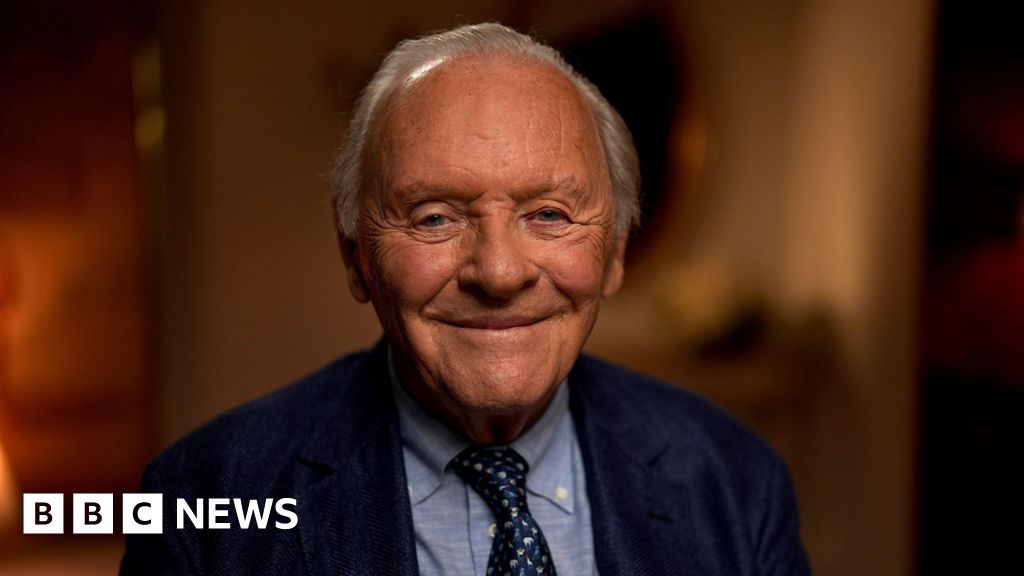Sir Anthony Hopkins: It's such a miracle being alive
2 hours ago Share Save Katie Razzall Culture and Media Editor, Los Angeles Share Save
BBC Two-time Oscar winner, Sir Anthony Hopkins tells the BBC that he can't "take credit" for his success
Not many people can say they've been given a private piano recital by Sir Anthony Hopkins. But that's exactly what happened when our four-strong BBC team went to interview the double Oscar-winning actor in Los Angeles. We were in the same room as the man who terrified as Hannibal Lecter in The Silence of the Lambs, shattered as a butler in The Remains of The Day and devastated as a dad with dementia in The Father. An actor who was cast by Oliver Stone as President Nixon because - according to Sir Anthony - the director said "you're nuts like Nixon". At a grand piano in a hotel in Beverly Hills, as he plays us a piece he calls Goodbye, it's clear an artistic soul exudes from his every pore. Haunting notes of music, lines of poetry and Shakespearean verses cascade out of him.
A private piano recital with Sir Anthony Hopkins
We were meeting because Sir Anthony's publishing his autobiography, We Did OK, Kid, an honest and at times upsetting account of a loner who was bullied and written off as a child in Wales and became one of Britain's finest acting exports. He puts his success down to sheer luck, telling me: "I couldn't take credit for any of it, I couldn't have planned any of this - and now at 87, about to turn 88, I get up in the morning and I think, 'Hello, I'm still here,' and I still don't get it." From the outside, it looks less about luck and more about his deep understanding of human emotion, as his performances testify. I ask what makes him such an instinctive actor. "It's such a miracle being alive," he says. He finds the complexity of human beings "fascinating... I mean, how can you produce Beethoven, Bach and then Treblinka and Auschwitz?" Sir Anthony has always understood the duality of being human, and it exp
Continue Reading on BBC News
This preview shows approximately 15% of the article. Read the full story on the publisher's website to support quality journalism.
